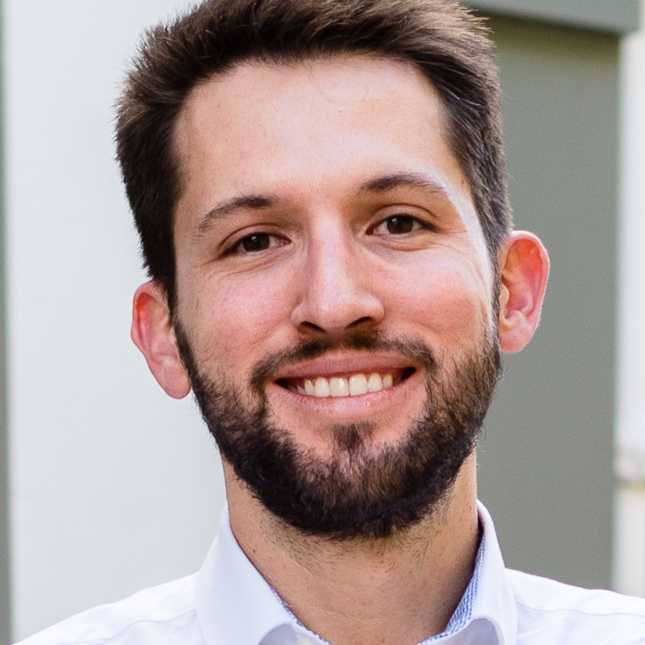Redirecting immune cells against cancer
ETH spin-off Engimmune Therapeutics, a D-BSSE start-up from the Reddy group, has developed technologies to engineer T-cell receptors (TCRs) which are part of immune cells. Guided by machine learning, the technologies enable the development of TCR drugs that specifically target solid tumours. This emerging therapeutic approach is scalable and less costly than other modalities such as cell therapies.
Rodrigo Vazquez-Lombardi, CSO and co-founder of Engimmune Therapeutics and CEO Lars Nieba gave ETH Industry Relations an update on their latest achievements.
Founded in 2021, Engimmune Therapeutics engineers soluble TCRs for use to address the high unmet medical need of advanced solid cancers. TCRs are normally found on the surface of T cells but can be repurposed to make soluble drugs akin to monoclonal antibodies. Different to monoclonal antibodies, soluble TCRs can recognise intracellular targets that make up about 90% of the human proteome.

“It is very difficult to engineer soluble TCRs that bind a tumour antigen very strongly but that have no safety liabilities. It’s like trying to find a needle in a haystack.”Rodrigo Vazques-Lombardi, CSO and Co-Founder Engimmune Therapeutics
An emerging approach to target cancer cells
Traditional targeted immunotherapies engage antigens on the surface of tumour cells, which account for 10-15% of the human proteome. However, many tumour antigens are inside the cell and therefore not reachable by such approaches.
This is where soluble TCRs provide a targeting advantage: by recognising small peptides derived from intracellular antigens that are processed and displayed on tumour cells. “Our approach is both very promising and technically challenging”, says Rodrigo. “It is very difficult to engineer soluble TCRs that bind a tumour antigen very strongly but that have no safety liabilities. It’s like trying to find a needle in a haystack.”
How do the technologies work and what is unique about them?
Engimmune Therapeutics’ technologies enable them to display hundreds of millions of TCR variants. Rodrigo adds: “We select them based on how strongly and specifically they recognise a tumour antigen. Moreover, we can also sequence them to get the identity of the TCRs and generate large data sets.” The data is then used to create machine-learning models that can distinguish between good and bad TCRs. Essentially, this procedure enables the startup to screen for very specific TCRs both in the lab and on the computer, which massively increases their chances of success.
The technologies coupling protein engineering and machine learning were initially developed in Professor Sai Reddy’s lab at ETH. Over the past 18 months, Engimmune’s team has built on this foundation to develop additional technologies that not only improve the binding strength and specificity of soluble TCRs but also enhance their manufacturability, expand their function, and expedite their safety screening.
Read on >> find the full-length News on the ETH Industry Relations website.
This is a shortened version of the News post by ETH Industry Relations.
Find information on external page Engimmune Therapeutics.
Learn about research in the Systems and Synthetic Immunology group led by Sai Reddy.